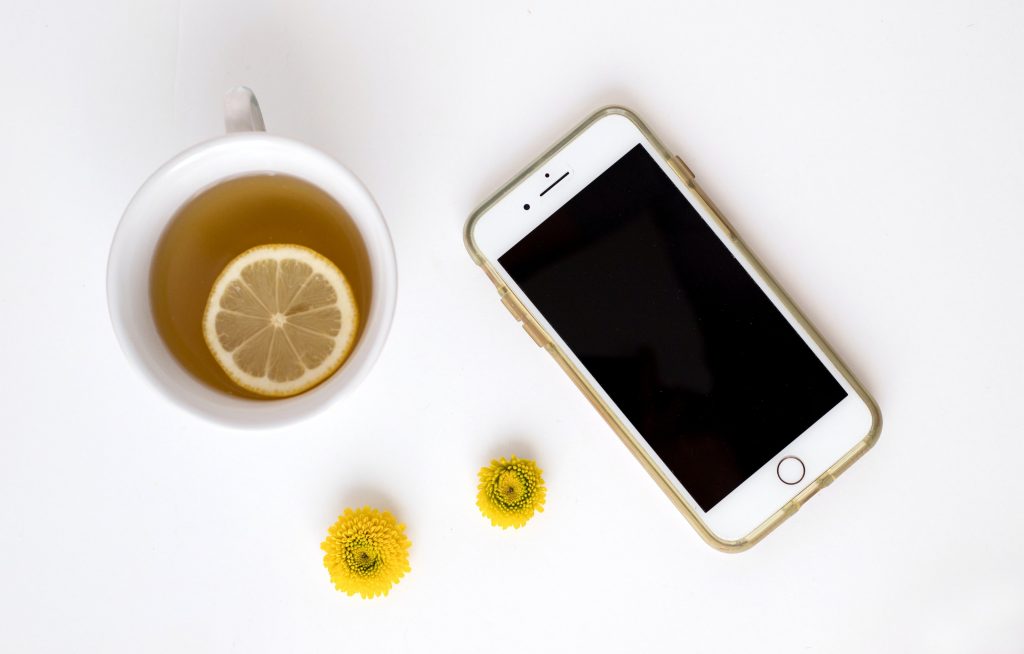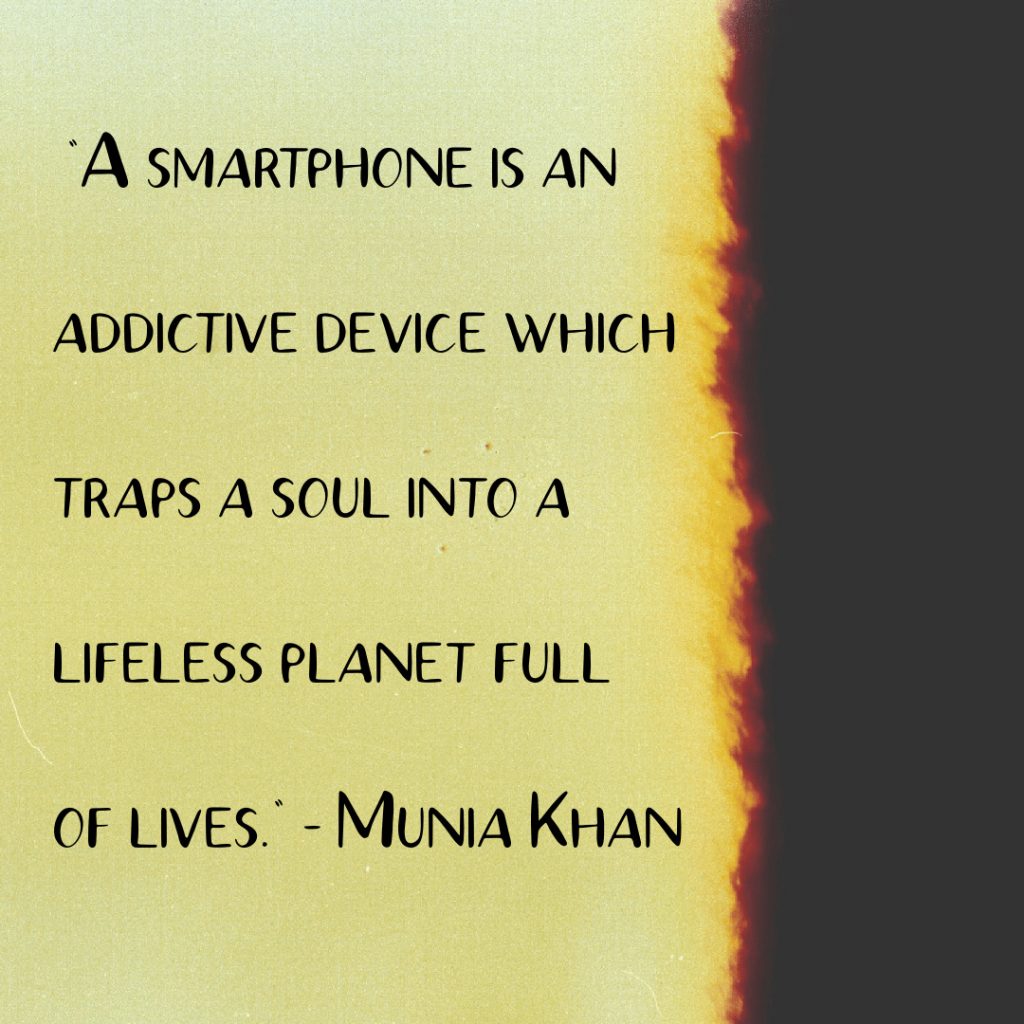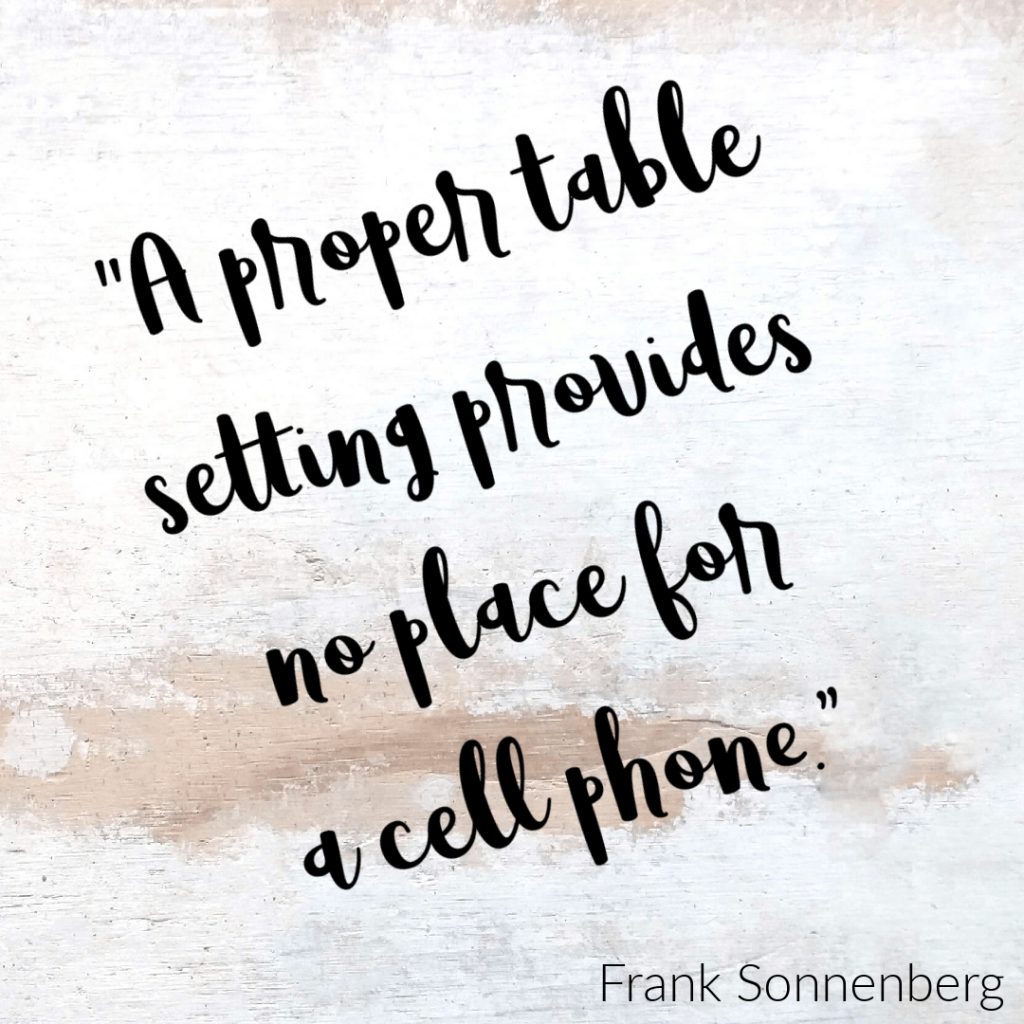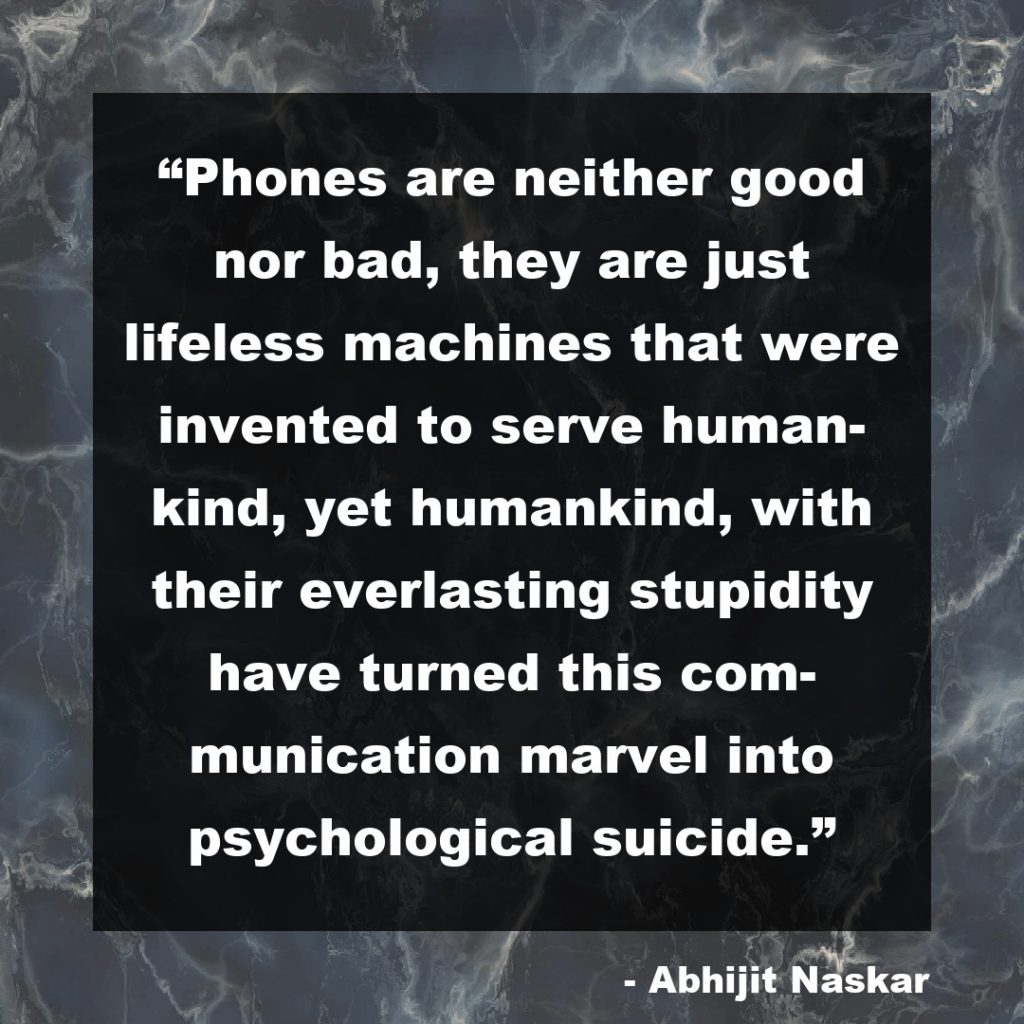Hi, my name is Kendra, and I am addicted to my phone.

The Problem
I can’t quite pinpoint when the addiction began. I was fairly late to getting a smart phone (I believe it was 2012 when Luke finally convinced me to exchange my old-school Razr for an iphone), but my phone and I were quickly attached at the (literal) hip. Like everyone around me, my phone became my entertainment, my bridge to friends and family, my window to the broader world, my record-keeper and memory holder, and—with its endless tools and trackers and resources—my brain.
The enmeshment deepened when I became a mom, as my phone allowed me to streamline my life (trading analog items for digital resources to make space for baby gear) and provided much-needed connection and entertainment during long, lonely hours of nursing babies and being at home.
Unfortunately, I was blind to my dependence on this device—partly because of its undeniable benefits and life enhancements, but also because everyone around me was also wrapped up in this same addiction. In less than a decade, our society had willingly transformed into a herd of distracted zombies, incapable of spending a dinner get-together or even standing in a grocery checkout without pulling out our phones.
Like the addiction itself, my awareness of my own problem came upon me slowly. I read several articles and books about the dangers of technology addiction and the damaging implications of phone overuse, and I could see the truth of these warnings in my own habits and dependencies. I had grown incapable of boredom, of sitting through a movie without pulling up iMDB while I watched, of getting through a conversation without fact-checking on my phone, of reading a book without pausing every few minutes to check notifications, of going on a walk without pulling out my phone a dozen times to jot down notes for a blog post or add items to my to-do-list. . . . the list of limitations goes on. This constant checking left me frazzled and unfocused, and it sucked the joy out of too many experiences and potentially important moments.
Without my notice, the world within my phone had begun to take priority over the physical world around me. And this was not who I wanted to be—for myself, and especially for my kids, who were not only experiencing the secondhand damage of a distracted mother, but who were watching my every move. I desperately want better technology habits for them, and I could see the hypocrisy of limiting their screen time without giving a second thought to my own.
As I embarked on a year of seeking wonder in 2021, I knew that digital distraction would be my biggest adversary in discovering wonder in my life this year. At that point I had already begun making headway in improving my phone habits: after 2020 forced us all home and more technology-dependent than ever, I was tired of how much time I spent with my eyes glued to a screen. And with homeschooling ramping up and the twins becoming more active (read: I was no longer spending a majority of my days strapped into a nursing pillow), I was already spending quite a bit more of my waking hours apart from my phone. But I was ready to step up my phone-free game.

Some Solutions
In January, I began to implement a number of phone-related boundaries and started building in new, healthier habits. Through these efforts, I have managed to cut down my average daily screen time by nearly 70%. I am by no means perfect at these and break my own rules countless times per day, and I still spend far more time glued to my screen than I would like. But my phone addiction is drastically improved from where it was just a few months ago, and I’m continuing to see gradual improvement.
As you’ll see, many of these tricks are simply shifting phone usage to other devices such as my computer and my Kindle, but these are less of a problem/time suck for me, and for now these are substitutions I’m willing to make. Here’s a look at some of the steps I am taking.
+ I ruthlessly curated my email and RSS Reader, unsubscribing from all but a handful of newsletters and blogs.
+ When I do read blogs or emails on my phone, I refrain from clicking links (or at least pause to think if it’s a link I truly want to click before doing so).
+ I unsubscribed from several podcasts. (This is still a HUGE area for improvement, as I continue to listen to more than I care to admit; baby steps!)
+ I deleted more than half of the apps on my phone, including a number of productivity apps, games, and Facebook. (Note: I’ve kept my Facebook profile [for now] but only post [and occasionally check notifications and groups] from my computer, and I no longer look at my feed.)
+ I hid the Instagram app from my home screen and put a 5-minute limit on my Instagram usage (just enough time to post pictures—something I’m not ready to give up—but not enough time to scroll my feed.)
+ I turned off almost all notifications, including text notifications from all but family.
+ If I’m otherwise occupied, I don’t respond to non-urgent text messages right away but wait until I can do so undistracted.
+ I save Amazon and other online shopping for my computer.
+ I keep a notebook close at hand for jotting down ideas and to-do lists. (If needed, I transfer these to Evernote when I sit down with my computer.)
+ I don’t allow myself to look up information in the moment; if a question or something else I want to research comes to mind, I let it sit for a few minutes and if it still is something I want to pursue further, I write it down on a piece of paper to look up on my computer later.
+ I pause before pulling out my phone and ask why I’m doing it (is it a compulsion, or truly something I need to do or check now?).
+ I wear a watch so I’m not dependent on my phone for the time.
+ I read on my Kindle device instead of through the Kindle app on my phone.
+ I am reading more analog books, and keeping Bible reading to my physical Bible rather than on the Bible app.
+ I am doing more journaling, note-taking, and blog drafting in paper journals and notebooks.
+ I cook from cookbooks or from printed out recipes rather than having a recipe pulled up on my phone.
+ I don’t look at show notes while listening to podcasts.
+ I leave my phone in another room when watching tv, reading, or going to the bathroom, and occasionally when going for a walk. (I do keep my phone with me whenever I’m with my kids, so that I can take pictures—yet another huge area for improvement.)
+ I put my phone away at meal times, during school time with Charleston, and (usually) when I’m nursing the twins.
+ Evenings after the kids are in bed are almost entirely phone-free. If I need to do any work or check my text messages, I do so from my computer.
+ I leave my phone in my purse when I am in the car (including when I’m the passenger or when I’m waiting in the carpool line), running errands, or in any public space like church or a restaurant. (It’s been fascinating to notice how nearly everyone around me has their phones out.)
+ I don’t “phone multitask” (listening to an audiobook or podcast while also doing something on my phone screen).

The Takeaways
Breaking up with my phone has been both harder and easier than I had anticipated. It’s been startling to realize how habitual my phone-checking had become, and breaking these mindless habits has been a challenge. Even a few months into these changes, I find myself reaching for my phone without giving it a second thought. It certainly doesn’t help matters that I still like to keep my phone on hand for taking pictures of my kids. (I recognize the downsides to spending SO MUCH time viewing my children through my phone’s camera, but for now the benefits of having these picture and video memories outweighs the cost of having my phone present during time with them.)
In other ways, these new changes have come more easily than expected because I am realizing how little I miss my old habits and how much freer I feel without them. So much of the time I was spending on my phone was mindless and was not enhancing my life in any way; I don’t miss what I’ve given up and am finding much more fulfillment and peacefulness in being present in the real world than I ever experienced while staring down at a screen.
It is difficult to articulate the immensity of the benefits I am reaping through these changes. I am more present and focused, and much less frenzied and anxious. I am finding greater enjoyment in my reading, with my kids, in my time with the Lord, and in my social experiences. Rather than constantly seeking to avoid boredom with my phone, I have come to not just appreciate but actually crave moments of downtime. I have fallen back in love with people-watching, with daydreaming, and with mindfully observing the world around me.
My thought life in particular has been transformed: I am recalling memories and individuals I hadn’t thought about in decades; I am having vivid dreams; and I have experienced more insights, clarity, spiritual growth, and new ideas and revelations than any other time in recent memory. My goal of experiencing WONDER in 2021 is coming to fruition in ways that wouldn’t have been possible otherwise.
That isn’t to say that every aspect of this journey has been easy. If you’ve read my posts over the past few months, you know that I have simultaneously been experiencing mental health challenges and spiritual warfare unlike anything I have ever encountered. This could be purely coincidental, but I suspect that spending less time with my phone (and therefore more time with my own thoughts) has paved the way for some of these trials. I can see how I was using my phone to distract from deeper emotional and spiritual work that needed to take place, and this work has had a hefty price tag. A contributing factor could be that the restraint required to break these bad habits has been more mentally taxing than I realize, and this ongoing exercise in self-control has created space for anxiety and depression to creep in.
Regardless of these downsides and challenges, I continue to be enthusiastic about this healthier new relationship I am forging with my phone. It’s an ongoing journey, to be sure. I still have a number of digital habits that could use an overhaul (podcast-listening and photo-taking, I’m looking at you!). And it is still a daily battle to set aside my all-or-nothing thinking as I work through the process of seeing my phone as neither ALL good nor ALL bad, allowing it to be a useful tool without letting it become a crutch.
With more and more of our daily lives moving to our phones, this is likely to be a lifelong dance. But in recognizing the problem of my phone addiction, implementing steps for change, and now reaping the benefits of these changes, I see the value (NECESSITY!) of engaging in this dance rather than allowing myself to fall victim to my device.

I have many more thoughts on this topic and will likely be sharing more in the future—beginning with an upcoming post on how I’m choosing to occupy my mind in new ways these days. For now, I would love to hear from you: have you succumbed to unhealthy phone habits? Are you doing anything to overcome a phone addiction? If so, what steps have proven helpful for you?
Great discussion! I try to be mindful of my tech use but I haven’t gone on a strict diet. I notice my dependence most when I visit my 94 yo mother. It’s a discipline to sit and visit with out picking up my phone or checking notifications! I think with friends my own age, we both check our phone sometimes and it’s normal. But with my mom I really feel the tech divide! Actually most of the time I have my phone out in public I’m actually reading a book. I spent many more hours reading than on social media. I spent the greatest percentage of my social media time promoting my blog and interacting with bloggers. My hubs is the one when we watch tv who has his phone out to look up everyone and everything! We’re all addicted I fear!
It’s so interesting to see how these tech addictions vary among generations. I admire my mom who we teased as a luddite for a long time; now I recognize the value in her anti-tech ways. I can’t help but wonder if future generations will see how harmful our tech obsessions are and the pendulum will swing. . . they might roll their eyes Grandma Kendra for always having to be on a device. 😉
I do feel cool, though, when I can whip out my phone and scroll with the best of my grands!! 😂😂😂 if you can’t beat ‘em, join ‘em!